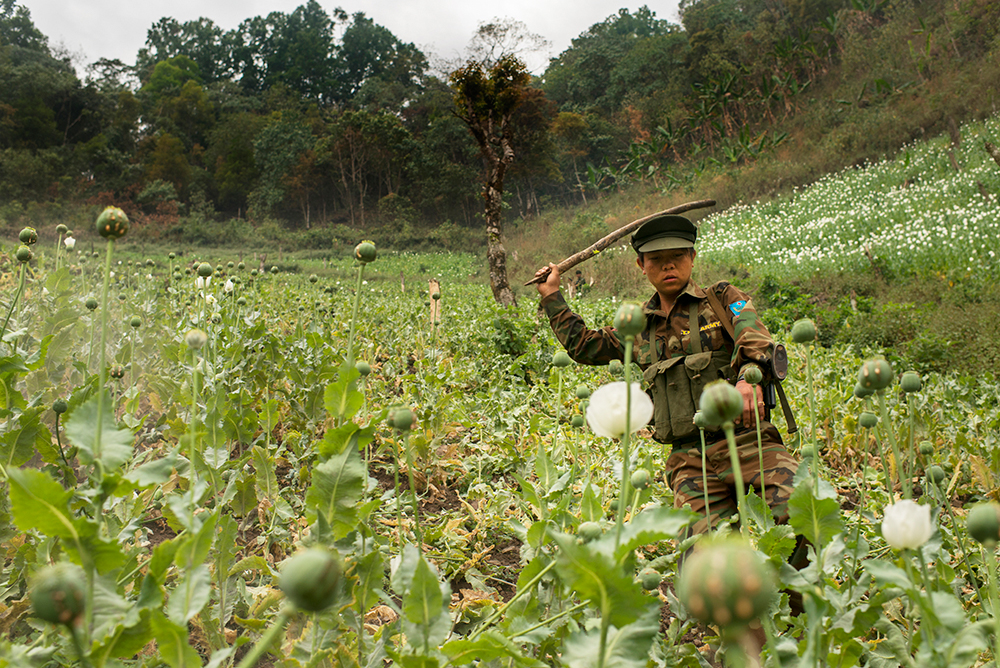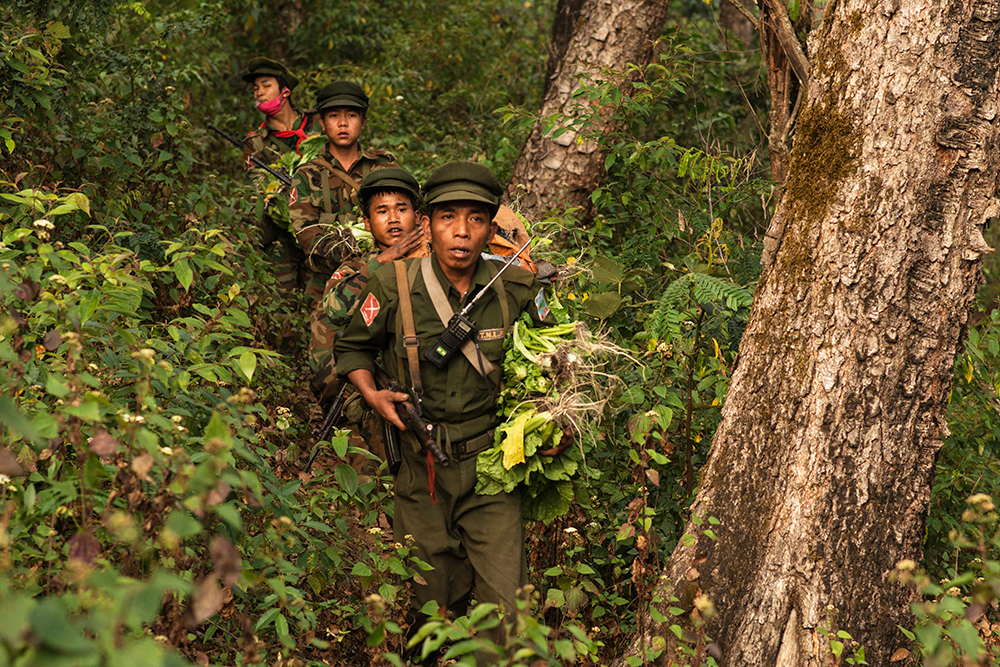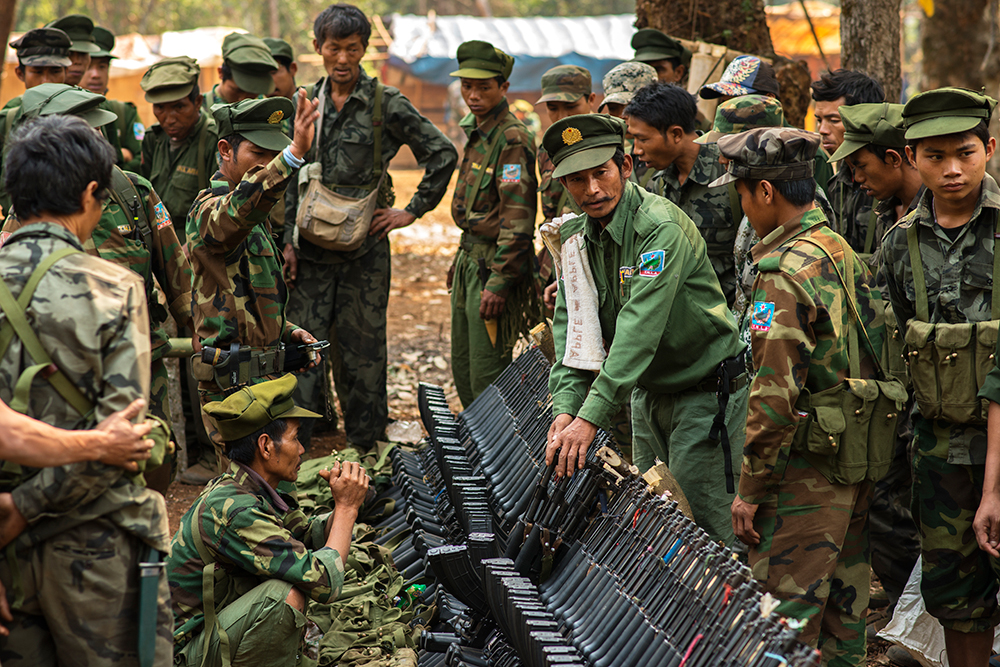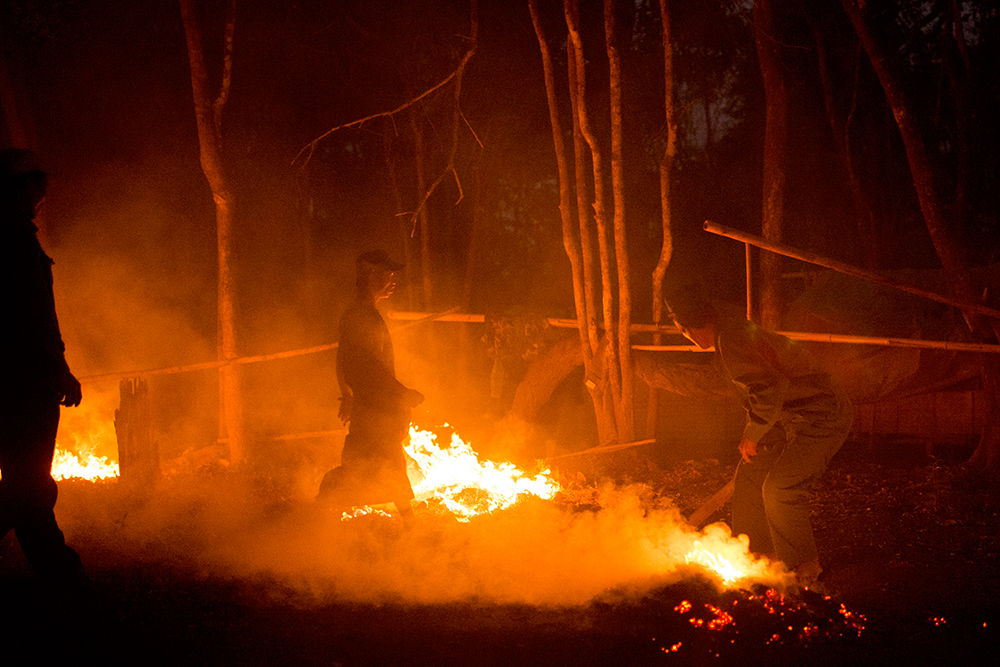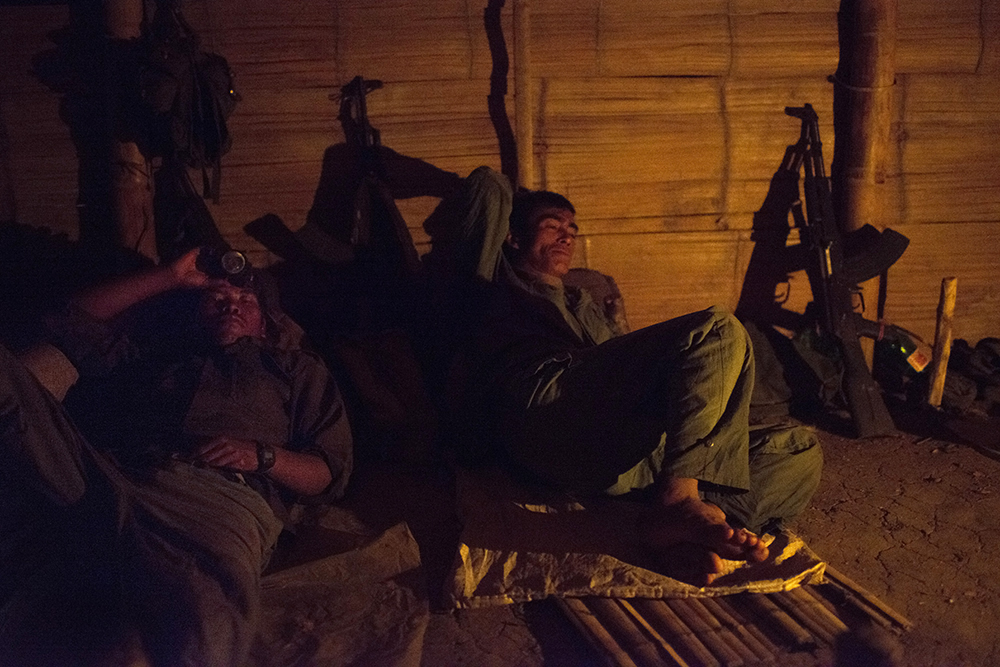War on opium
In the remote mountainous areas of the Sino Burmese border Ta'ang National Liberation Army (TNLA), the armed wing of the ethnic Burmese Palaung, has declared war on opium. According to TNLA commander, Tar Khoure Nyan, the opium production is destroying Palaung communities lifes, which in some villages counts with 50% of the population dependent on drugs. The rebels blame the Burmese army and Burmese-Chinese ethnic groups to resist eradication of opium poppies that TNLA would like to replace with plantations of rice and tea. The future of democracy in Burma depends, in large part, by the peace agreements that the government can establish with minority insurgents armies that control the majority of the territories where opium is produced.
Vincenzo Floramo, Was born in Trieste, Italy in 1968. After completing his studies at the Technical Industrial Institute, he began to live a nomadic life between Asia, South America, North America and Europe, which still continues. He has been committed to exploring, learning, connecting with and photographing the diverse expressions of human experiences that he encounters within these varied cultures. In 2002 he worked as a photographers assistant at Uta Tabea Marten in Berlin, Germany and in 2004 he attended the Metropolis photography school in Madrid, Spain. Recently he was present to a photojournalism workshop lead by the photographers Francesco Zizola and Lorenzo Maccotta in Italy. For the last few years he has been spending most of his time in India and Thailand where he has become involved with several groups. In Thailand he has spent extended periods of time living in the refugee camps, getting to know and photographing the Burmese there. With this project he collaborated with Amnesty Internationalâ??s magazine in Denmark, and exhibits his pictures in Barcelona and Madrid. In India he has become intimately involved with the customs, celebrations, institutions, and street life people of Varanasi. He presently lives between Spain,Denmark and South East Asia.
